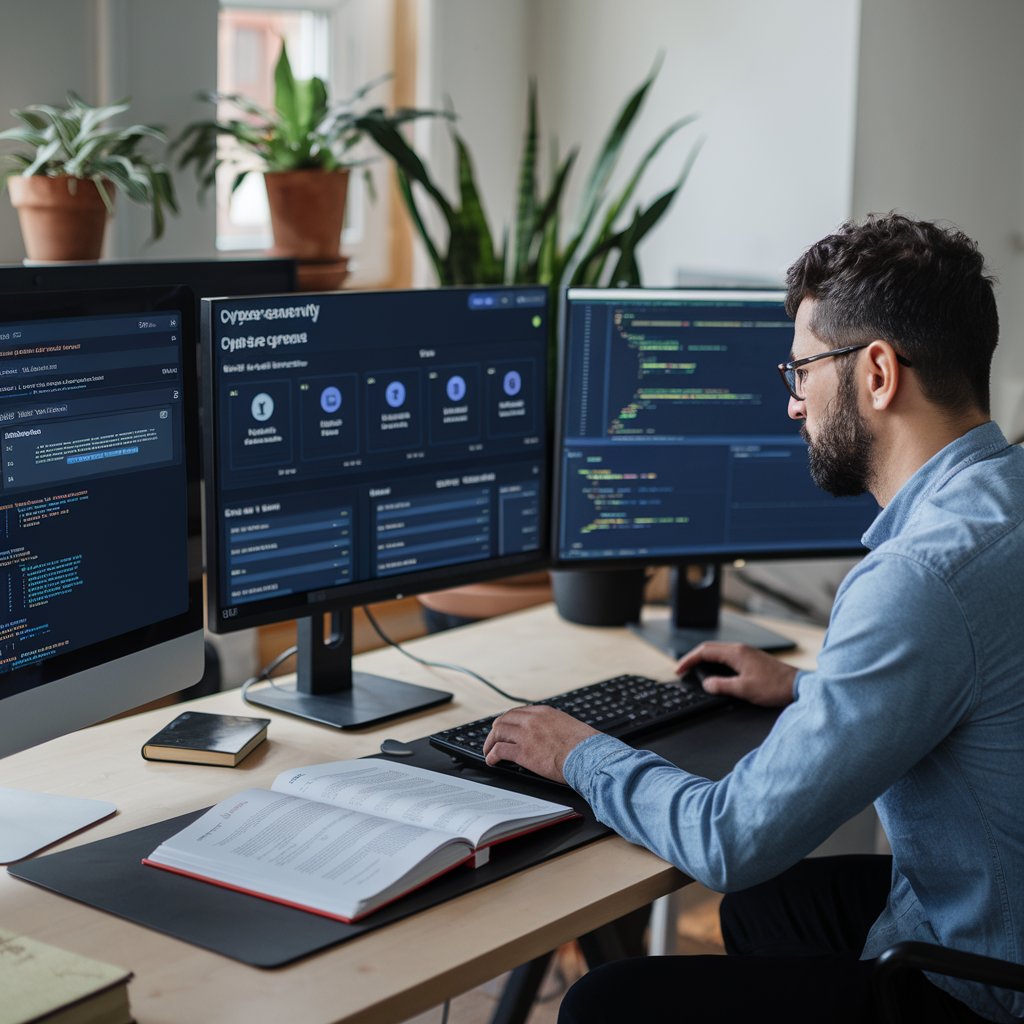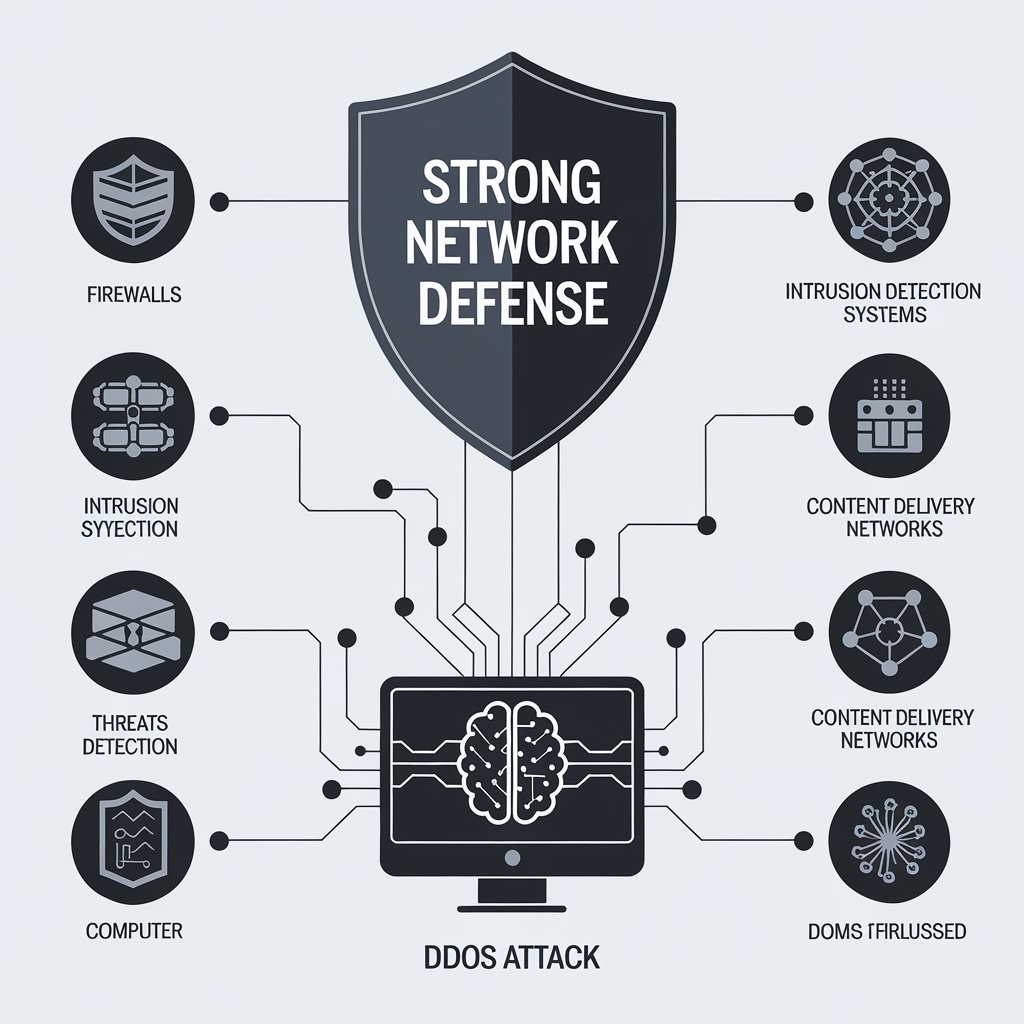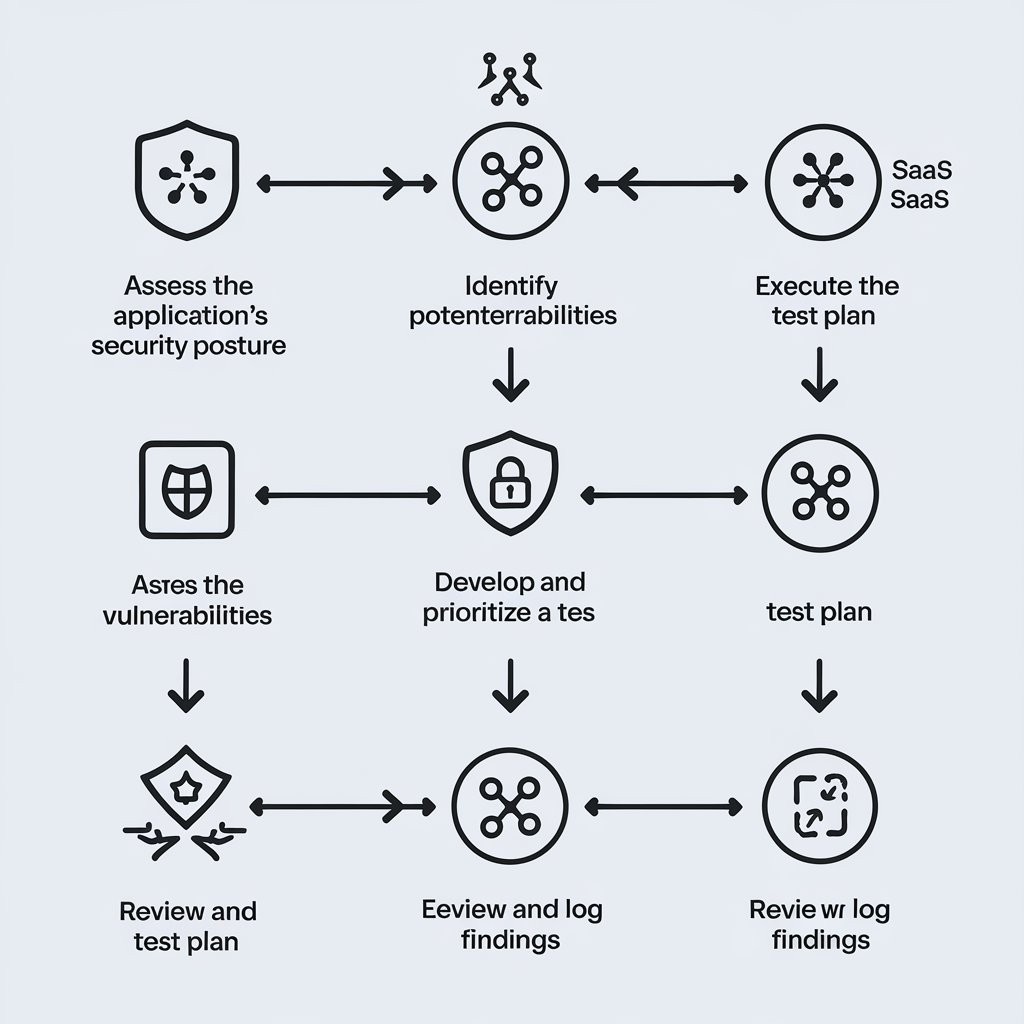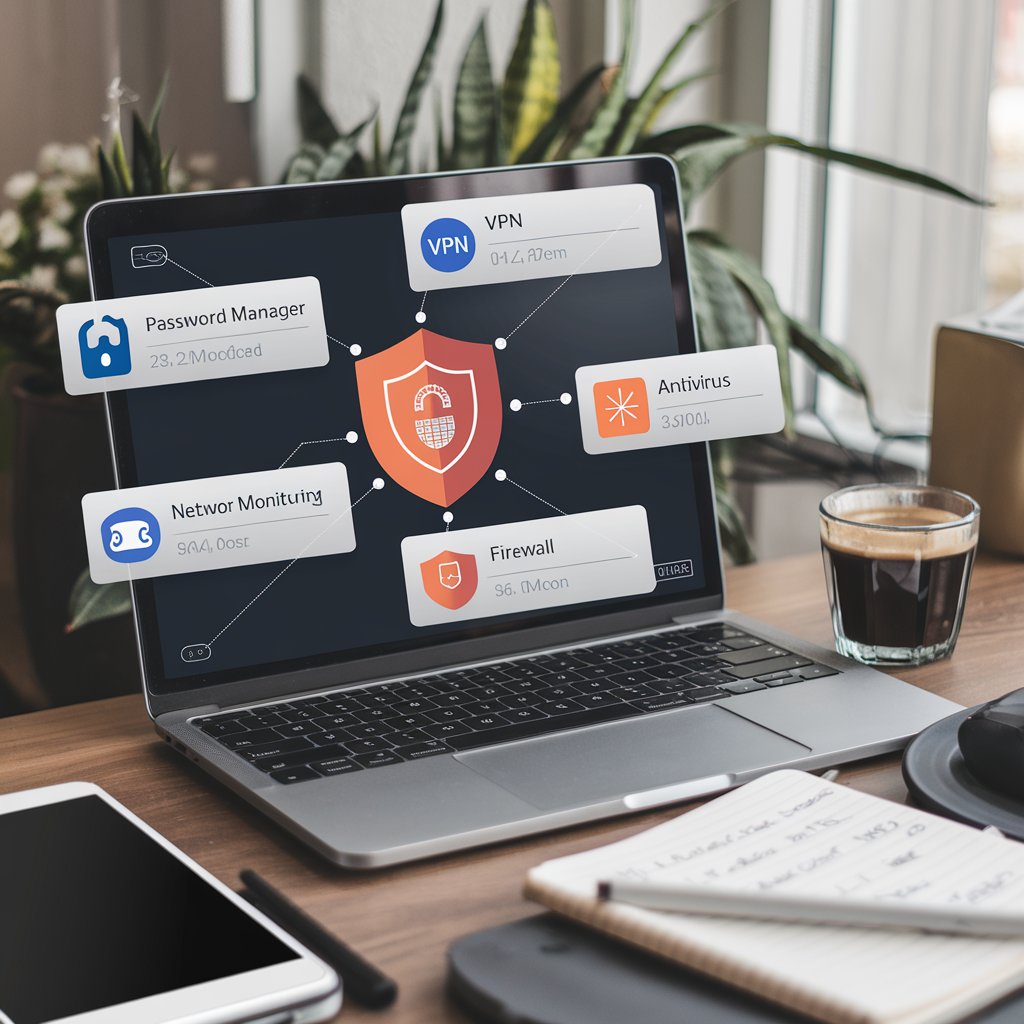The Role of AI in Cybersecurity Consulting Services
News & Insights
10 Min Read
The Role of AI in Cybersecurity Consulting Services Artificial Intelligence (AI) is transforming industries across the globe, and cybersecurity is no exception. In a world where cyber threats are becoming more sophisticated and frequent, AI is emerging as a critical tool for cybersecurity consulting services. By enhancing threat detection, automating responses, and providing insights for proactive security measures, AI is reshaping how organizations approach cybersecurity. In this blog post, we will explore the role of AI in cybersecurity consulting services and how businesses can leverage this technology to protect their digital assets.
1. Enhanced Threat Detection and Analysis
One of the most significant contributions of AI to cybersecurity is its ability to analyze large volumes of data quickly and accurately. Traditional methods of threat detection often rely on predefined rules or manual oversight, which can be slow and prone to human error. AI-powered systems, however, can continuously monitor network traffic, user behavior, and system activity to identify anomalies that may signal a potential cyber attack.
AI-driven Threat Detection:
Machine Learning (ML): Machine learning algorithms can learn from past cyber attack patterns and adapt over time, making them capable of identifying new, previously unknown threats. By analyzing data in real-time, AI can detect malicious activities that traditional systems might miss.
Behavioral Analytics: AI can detect irregular behavior in users or devices, such as unauthorized access attempts, unusual login times, or unusual data transfers, indicating a breach or attack.
Benefits:
Faster identification of threats
Reduced false positives
Enhanced accuracy in threat detection
2. Automating Cybersecurity Tasks
AI’s ability to automate tasks traditionally performed by human analysts is a game-changer in cybersecurity. Many cybersecurity functions require constant monitoring and response, which can overwhelm security teams. AI can automate repetitive tasks like security monitoring, patch management, and even incident response, allowing consultants to focus on more complex issues.
Automated Security Operations:
Security Information and Event Management (SIEM): AI can power SIEM systems to analyze log data from multiple sources, correlate events, and automatically generate alerts for suspicious activities.
Incident Response: AI can autonomously respond to certain types of cyber incidents by isolating affected systems, blocking malicious traffic, or applying patches to fix vulnerabilities.
Benefits:
Reduced operational costs
Faster incident response times
Improved efficiency in cybersecurity operations
3. Predictive Cybersecurity Insights
AI can provide predictive analytics that helps businesses stay one step ahead of potential threats. By analyzing historical data and recognizing patterns, AI can forecast the likelihood of specific attacks or vulnerabilities being exploited. This allows cybersecurity consultants to provide proactive recommendations, such as applying patches before vulnerabilities are exploited or strengthening defenses in areas identified as high-risk.
Predictive Analysis Capabilities:
Threat Intelligence: AI systems can gather data from various sources, including threat feeds and dark web monitoring, to predict emerging threats and attack vectors.
Vulnerability Assessment: AI can assist in identifying potential vulnerabilities within an organization’s IT infrastructure, providing businesses with a roadmap to address weaknesses before they are exploited.
Benefits:
Improved preparedness against evolving threats
Better allocation of cybersecurity resources
Enhanced risk management
4. Personalized Security Recommendations
Every organization has unique cybersecurity needs, and AI can help cybersecurity consultants provide personalized, data-driven security recommendations. By analyzing an organization’s specific network architecture, user behavior, and threat landscape, AI can tailor security strategies that are most effective for that particular environment.
Customized Cybersecurity Solutions:
Contextual Risk Assessment: AI can analyze contextual factors such as company size, industry, and current threat landscape to offer targeted security solutions.
Adaptive Defense Strategies: AI can continuously learn from the organization’s evolving cybersecurity posture and adapt security measures accordingly to address new threats.
Benefits:
More effective, tailored security strategies
Increased relevance of cybersecurity measures
Better alignment with business goals and objectives
5. Reducing the Skills Gap in Cybersecurity
The cybersecurity industry is facing a significant skills gap, with a shortage of qualified professionals to manage the increasing complexity of cyber threats. AI can help bridge this gap by providing valuable assistance in threat detection, incident response, and security analysis. AI-powered tools can assist cybersecurity consultants, reducing the dependency on a large workforce and helping consultants manage more clients and complex security challenges.
AI’s Role in Addressing the Skills Shortage:
AI-Powered Security Tools: AI can assist less-experienced security professionals by automating analysis and decision-making, allowing them to focus on strategic and high-level tasks.
Augmented Intelligence: AI enhances human decision-making by providing recommendations, insights, and analysis that would otherwise require extensive experience and expertise.
Benefits:
More efficient use of human resources
Alleviation of the skills shortage in cybersecurity
Better decision-making capabilities for security consultants
6. AI for Continuous Learning and Improvement
AI can continuously improve cybersecurity measures through ongoing learning. Unlike traditional systems, which need to be manually updated or reprogrammed, AI models evolve on their own, learning from new data and adapting to emerging threats. This continuous learning capability is critical for staying ahead of increasingly sophisticated cyberattacks.
Continuous Improvement with AI:
Self-Optimizing Algorithms: AI systems can refine their processes, algorithms, and models based on new data, improving their efficiency and accuracy over time.
Feedback Loops: AI systems can provide feedback to cybersecurity consultants on system performance, vulnerabilities, and potential threats, allowing for continuous improvement in security strategies.
Benefits:
Ongoing adaptation to new cyber threats
Increased efficiency in security operations
Better long-term protection against evolving threats
7. AI in Risk Management
AI can play a key role in helping cybersecurity consultants assess and manage risks. By analyzing historical data, user behavior, and attack patterns, AI can help consultants predict potential threats, identify vulnerabilities, and develop risk mitigation strategies.
Risk Management with AI:
Risk Scoring: AI can assign risk scores to assets, applications, or users based on data analysis, helping consultants prioritize areas that require attention.
Scenario Modeling: AI can model different attack scenarios and their potential impact, providing organizations with a clear understanding of their risk exposure.
Benefits:
More accurate risk assessments
Better risk prioritization
Enhanced decision-making for cybersecurity professionals

Conclusion
AI is rapidly transforming cybersecurity consulting services, offering tools and strategies that allow businesses to better protect their digital assets. From automating routine tasks to providing predictive insights and personalized security recommendations, AI is playing a vital role in strengthening cybersecurity defenses.
For cybersecurity consultants, integrating AI into their services enables faster, more accurate threat detection, reduces operational costs, and helps manage emerging risks. As cyber threats continue to evolve, AI will remain a key player in the ongoing effort to secure organizations and stay ahead of malicious actors.
By leveraging AI-driven tools and strategies, businesses can enhance their cybersecurity posture and minimize the risk of cyberattacks, while consultants can deliver more effective and tailored solutions for their clients. The future of cybersecurity is AI-driven, and embracing this technology is essential for businesses looking to stay secure in an increasingly complex digital world. audit3aa
Join our newsletter list
Sign up to get the most recent blog articles in your email every week.








